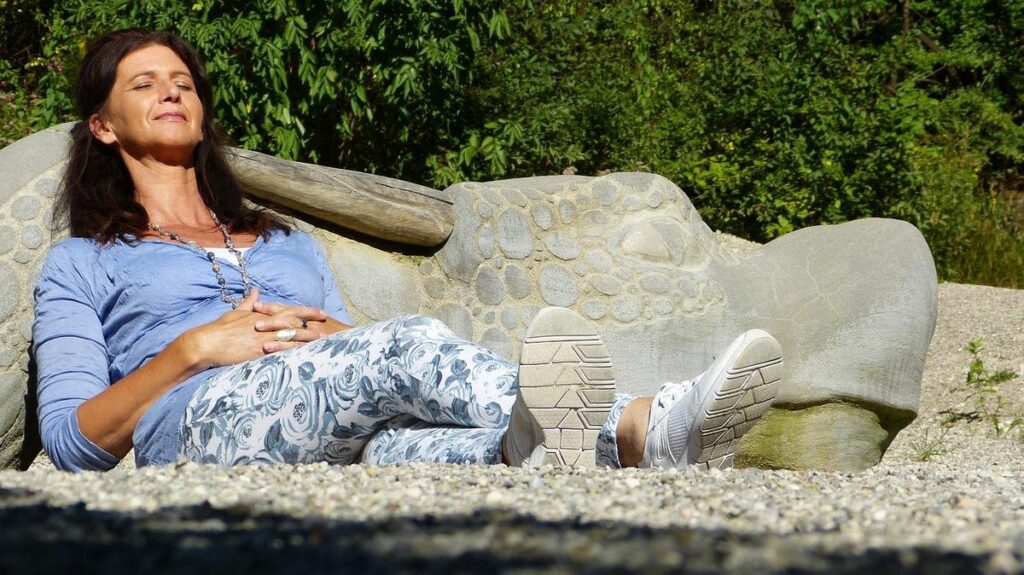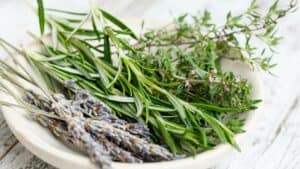

Hot flashes are one of the most common symptoms that plague women during menopause. That sudden flushing, heat, and sweating becomes annoying and uncomfortable to women and can come on at any time with no warning.
Hot flashes affect around three-quarters of women not only during menopause but in perimenopause as well. These hot flashes can last anywhere from months up to 5 years. Some women may even be so unlucky as to experience them up to 10 years after entering perimenopause, according to the North American Menopause Society.
There are various ways to help reduce hot flashes, and today we will look at five of the best ways to stop hot flashes in perimenopausal and menopausal women.
So let’s get started!
Related Links: CBD Oil For Hormone Imbalance
Table of Contents
Toggle1. Consume Soy Isoflavones
Soy contains large quantities of phytoestrogens, chemicals that act like estrogen in the body. Soy is exceptionally high in isoflavones, which bind to estrogen receptors. This can help reduce hot flashes.
Many studies are being done when it comes to menopausal relief using soy. Even though earlier studies are promising, according to the National Institute on Aging, the research is still not clear enough to definitively say that soy has an effective impact above and beyond medications.
According to certain doctors, if you are going t use soy, make sure to get soy from natural food sources instead of supplements. Certain foods such as soy milk, edamame, tempeh, and tofu are good sources to try.
2. Treat Hot Flashes with the Black Cohosh Herb
Black cohosh sounds like something that belongs in a witch’s brew, but it’s a popular herb used for treating menopausal symptoms such as hot flashes. Most of the time you will see the root plant in capsule form, but you will also find it in tea form. You can find these in specialty health food stores and at any online store that sells them.
The little research that has been done on black cohosh makes researchers believe that the herb binds to the estrogen receptors and helps to activate serotonin receptors.
Most of the studies that have been done on black cohosh are short term looking at any harmful effects that may occur up to 12 months. There have not been any long-term studies done yet, so it’s hard to say if continuous use is good or bad for your health.
A few small side effects have been reported, such as stomachaches and rashes and, in rare cases, reports of liver failure. As with any supplements you try during perimenopause or menopause, make sure to consult with your doctor first.
Related Links: CBD Oil And Estrogen
3. Try Hormone Replacement Therapy
.Hormone replacement therapy (HRT) has become more popular as time has passed. This is likely because it’s known to be the most effective treatment for hot flashes. With HRT, you can take estrogen by itself or combine it with another hormone called progesterone.
If you have had a hysterectomy in the past, you are clear to take estrogen by itself with no ill side effects. Other women should consider taking estrogen and progesterone in combination with each other.
Despite its popularity, estrogen isn’t recommended for all women. If you have had a history of breast cancer or other medical conditions, then taking estrogen is not recommended. Estrogen is thought to increase future health risks of diseases such as heart disease, blood clots, and breast cancer.
4. Eat Healthier and Relax

Eating healthier, reducing your caloric intake and destressing with yoga are great ways to reduce hot flash symptoms. Believe it or not, certain foods will increase or aggravate hot flashes. These include high-fat, high-carb diets, any type of alcohol, spicy foods, and caffeine. All will increase the level and frequency of hot flashes.
With all the studies, one of them found that the Mediterranean diet, which is based on fresh vegetables, fruits, and whole grains, can reduce hot flashes. But remember, everyone will be different. You want to find something that works well for you. Eating plant-based foods is always a good idea whether you are experiencing hot flashes. Vegetables are packed full of vitamins and nutrients that a woman’s body needs as it ages.
During your experience with menopause and hot flashes, you can learn what types of foods trigger your hot flashes. If you can find this out, then you will know which foods to stay away from. Drinking cold beverages during the day can also help keep your body temperature down. You can also carry a wet towel and hang it around your neck to keep you cool.
Stress is something that can bring on hot flashes. Therefore, take the time to try and relax your mind through activities such as yoga, meditation, tai chi, walking, or anything that destresses your mind. By incorporating some of these activities into your weekly routine, you might be able to reduce the frequency of hot flashes you experience.
Related Links: CBD For Hot Flashes
5. Medications, Antidepressants, and Smoking
Smoking, as everyone knows, is not good for anyone’s body. But as you get older, smoking can trigger hot flashes during menopause more frequently. Quitting smoking can help reduce the severity of hot flashes and the frequency at which they occur.
Many women also want to know if there is a magic pill they can take to get rid of hot flashes. The answer is yes and no. Small doses of antidepressants may have a positive effect on reducing the frequency with which a woman experiences hot flashes.
Antidepressants have been used to treat other symptoms of menopause, such as anxiety, depression, and mood swings. The only downside to taking antidepressants is that they can work against your libido and reduce your sex drive.
There are other medications such as Gabapentin (Neurontin), which treats seizures, and Clonidine (Kapvay), which treats high blood pressure, that may help reduce hot flashes. There can be a few side effects associated with each one, such as drowsiness, dizziness, and headaches, but nothing too severe. As always, consult your doctor before deciding which treatment is best for you.
Conclusion
The above list is a few of the most impactful things you can do to help stop hot flashes. Since hot flashes are an inevitable part of the menopause cycle, you won’t be able to stop them altogether, but you will be able to curb them by following the five tips above.
For more alternative ways to handle your hot flashes during menopause, visit our website at Hemplily.com



